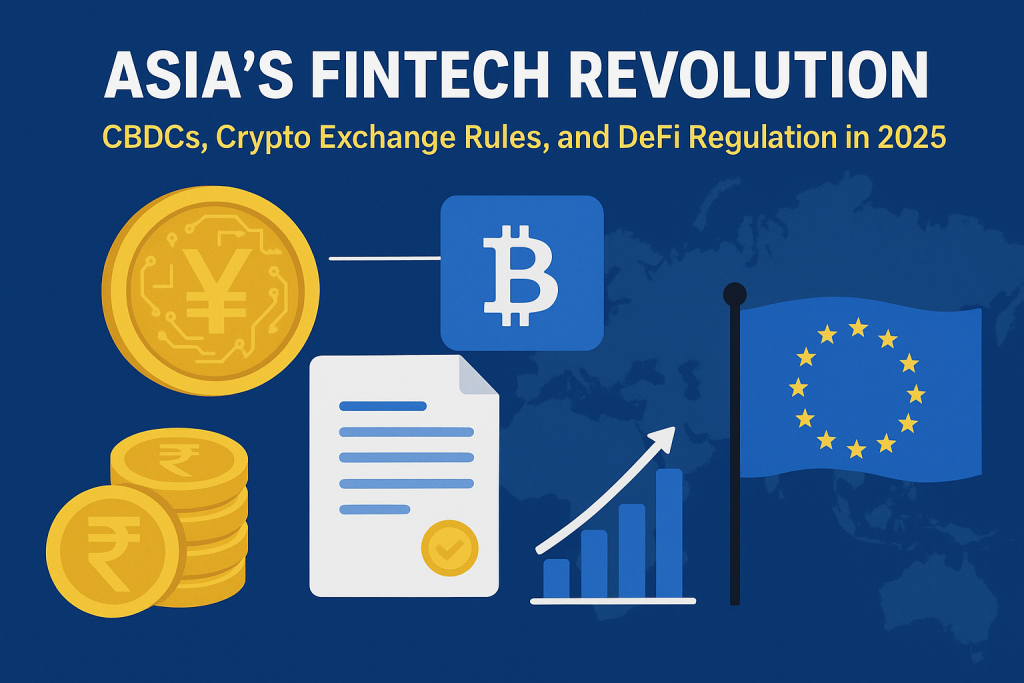Asia is rapidly becoming the global leader in financial technology innovation, and 2025 marks a turning point. Across the region, central banks, regulators, and policymakers are shaping a new financial landscape, where digital currencies and decentralized finance coexist with strong consumer protections.
Central Bank Digital Currencies on the Rise
Central Bank Digital Currencies (CBDCs) are no longer just pilot projects. China’s digital yuan is already in use for retail payments in dozens of cities, from Beijing to Shenzhen. Meanwhile, India’s digital rupee is moving from wholesale pilots to retail applications, aiming to improve financial inclusion for millions of citizens.
Japan and South Korea are not far behind. The Bank of Japan has expanded its CBDC experiments, testing interoperability with private payment providers. Similarly, the Bank of Korea has partnered with major commercial banks to simulate real-time transactions using its prototype digital won. These developments show Asia’s commitment to modernizing monetary systems while keeping sovereignty over money creation.
Regulating Crypto Exchanges: A Regional Comparison
Crypto exchange regulation remains one of the most debated topics in Asia. Singapore, for instance, has taken a licensing-first approach under its Payment Services Act, ensuring that only compliant exchanges can offer services to retail users. This fosters trust but keeps the market relatively small.
Hong Kong, on the other hand, reopened its doors to retail crypto trading in 2023, issuing new licenses and aiming to become a hub for digital asset innovation. India has chosen a stricter route, imposing high taxes on crypto transactions but slowly developing a regulatory framework that could eventually legitimize exchanges.
These contrasting strategies illustrate the diversity of approaches across Asia, but they share a common goal: preventing fraud, protecting investors, and encouraging innovation.
DeFi and NFT Regulation: Tackling Fraud and Security Risks
Decentralized finance (DeFi) and NFTs have exploded in popularity, yet they also attract scams and exploits. Asian regulators are beginning to respond. In South Korea, new legislation requires DeFi platforms to conduct security audits and provide clear risk disclosures before listing tokens.
Japan’s Financial Services Agency (FSA) is also working on guidelines for NFT marketplaces to combat money laundering and copyright infringement. Even in markets like Indonesia and Thailand, regulators are pushing for stricter know-your-customer (KYC) requirements to prevent illicit activity.
By introducing these measures, authorities aim to strike a balance between protecting users and allowing innovation to flourish.
The Road Ahead
Asia’s approach to fintech regulation is becoming a model for the rest of the world. With CBDCs moving toward mass adoption, crypto exchange rules becoming clearer, and DeFi platforms facing higher compliance standards, 2025 is shaping up to be a year of maturity for the region’s digital economy.
As these policies take effect, investors and innovators will benefit from a more predictable and secure environment—turning Asia into a true powerhouse for the next generation of financial technology.


